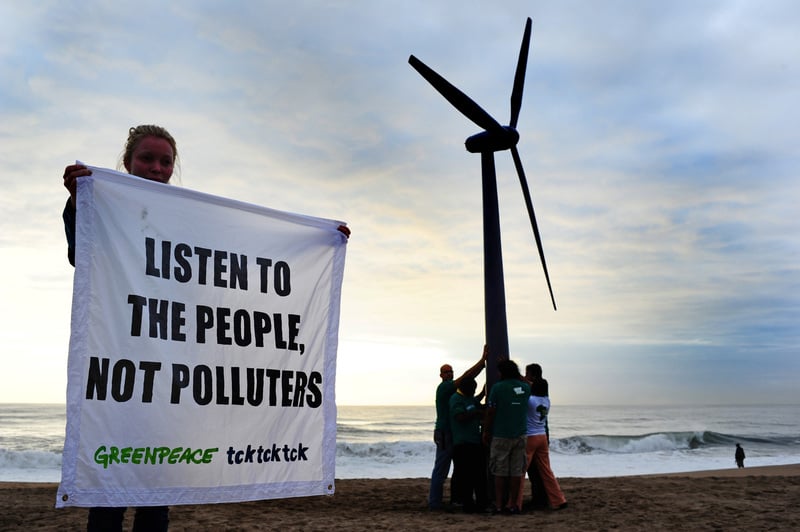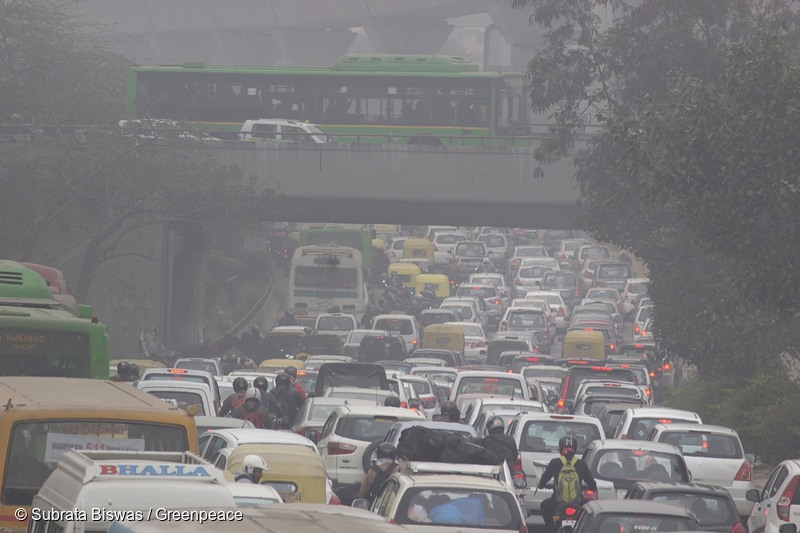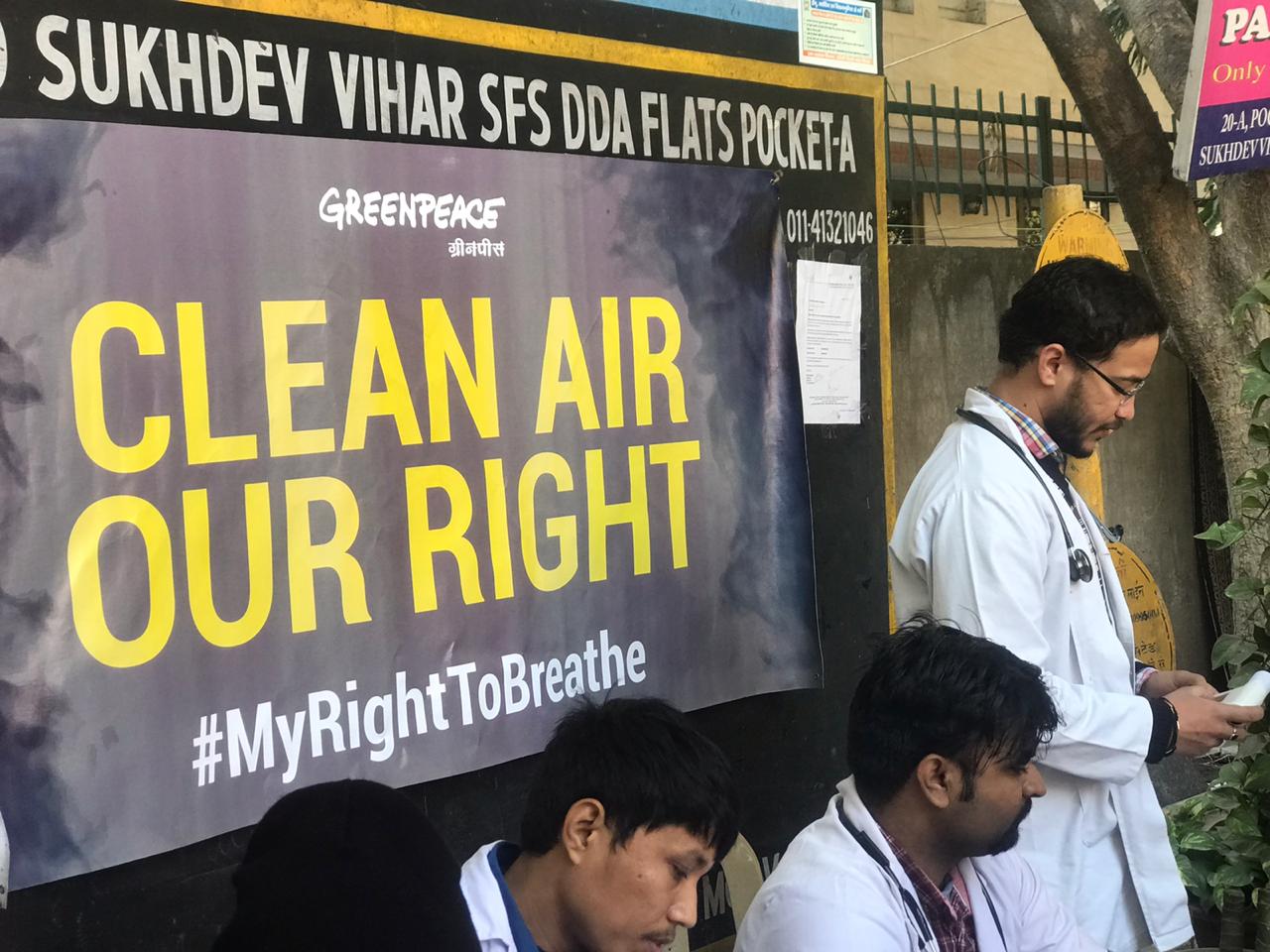New Delhi May 17 2018 | Clean Air Collective – network of CSOs, Farmers, and Citizens Groups today sent their recommendations on the draft National Clean Air Programme (NCAP) to the Ministry of Environment Forests & Climate Change.
The National Clean Air Programme draft was put up on the MoEFCC website for public commenting till May 17th 2018. The Clean Air Collective had a day long consultation in Delhi on 9th May 2018 as an outcome of the consultation, experts have suggested 20-point recommendation note, to strengthen the NCAP.
Following are few major recommendations from Clean Air Collective:
1. Emission Targets- MOEF&CC should incorporate 35% reduction in three years and 50% reduction in five years as targets to make NCAP effective and impactful.
2. Sectoral Targets- Draft NCAP has ignored polluting sectors like industry and coal thermal power plants, which are regulated by the central government. Highly polluting industries and industrial clusters should be regulated under NCAP with clear timelines and targets for implementation.
3. Interim Milestones- Milestones are crucial for evaluating NCAP and the same interim milestones should also be extended to sectors like industry and power plants.
4. Stubble Management- NCAP must have holistic approach to tackle the issue of stubble management. Currently the approach is isolated. Both “in-situ crop residue management” and creation of infrastructure and market for the use and management of stubble outside of the field (“ex-situ” management) should be incorporated in NCAP.
5. Strengthening Non Motorised Transport- “Road Widening and supporting development of such infrastructure (flyovers) within cities” as suggested under the letters issued to SPCBs/PCCs in 2015 and 2016 are likely to result in an increase in emissions, as they promote private ownership and use of vehicles. To decongest the traffic more emphasis must be given on promoting/strengthening the Non-Motorised Transport (NMT) and public transportation, which are long term sustainable solutions also highlighted under NUTP (National Urban Transport Policy).
6. Waste Management- A comprehensive urban waste minimization and segregation policy should be integrated with NCAP to control air pollution.
7. Define Process of Selection of Nonattainment Cities- There needs to be a relook at the process of selection of Non attainment cities as draft NCAP misses out on including high polluted cities like Gurgaon, Faridabad, Bulandshahar, Muzzafarnagar, Patna, Gaya and Muzaffarpur etc.
8. Beyond 100 Non attainment Cities- The coverage of NCAP should not just be limited to the list of 100 cities as mentioned in the concept note and should be extended to other polluted geographies as well.
9. Statutory Act- The NCAP must be linked to some statutory Act, like Air Act, 1981 – to make it enforceable so that if public want to address the fact that this NCAP has not been implemented, they can approach court.
10. Language Barrier-The draft NCAP is only in one language (English) which does not allow the impacted population to be part of the process for even commenting on the draft, it should have been made available in other regional languages as well at-least in those languages, which are widely spoken by the community mostly impacted by hazardous pollution levels. Hence, NCAP to be translated into regional languages and extend the deadline for public consultation by at least one more month.
Sunil Dahiya, Campaigner, Greenpeace India said “The first and foremost priority for the ministry should be to set time-bound emission targets to reduce air pollution. NCAP is the ultimate framework to ensure compliance to their commitment towards tackling air pollution from the source. Missing of emission as well as sectoral targets is making NCAP not only redundant but pointless.”
Implementation of emission norms for industries and coal power plants was a top priority.
Talking about the government’s double standards on emission norms for thermal power plants, Ritwick Dutta, of LlFE said: “On one hand Government is launching the NCAP. On the other hand, it continues to kill its own air pollution norms. Emissions from power plants are significant contributor to air pollution. The government is killing the 2015 emission standards for coal-based power plants. NCAP only speaks high words. It neither has any clear strategy nor targets even when pollution is reaching toxic levels across India. The plan is too techno-centric without any target and without any detail on action against violations.”
Impact studies on the basis of questionnaires and not clinical data
The recent report by World Health Organisation (WHO) has once again put India’s air pollution problem on a global platform. According to WHO eight of the top ten most polluted cities are in India. Other studies [2] have time and again pointed out that air pollution claims 7 million lives every year. Nine out of ten people breathe air containing high levels of pollutants worldwide. Despite this, the current draft is looking at health impact studies based on questionnaires, rather than basing them on clinical data, which establishes a link between air pollution and a plethora of diseases.
Explains Dr. Manas Ranjan Ray, Former Assistant Director, Chittaranjan National Cancer Institute: “Air pollution is a silent killer, it can’t be seen, but it’s killing us all. Air pollution leads to tissue burn, which in turn causes tissue degenerative diseases, which range from respiratory, cardiovascular diseases to mental health disorders like Alzheimer’s and Parkinson’s. Air pollution is not just localised problem of Delhi, but is a national problem which needs to be addressed. Particulate levels are much worse in other parts of the country like Jharia, Chhattisgarh, or tourist spots like Gangtok and Darjeeling, and cities like Gaya, Lucknow and Kolkata.”
If the environment ministry is serious about public health, then it must ensure a stronger National Clean Air Programme and its immediate implementation. The Clean Air Collective expects and urge MoEFCC to incorporate the recommendations in the final version of the programme to truly make it a powerful framework to tackle air pollution.
Footnotes:
[1] Recommendations by Clean Air Collective https://www.greenpeace.org/india/Global/india/2018/Letter_Civil_Society_Stakeholder_Comments_National_Clean_Air_Programme.pdf
[2] WHO 2018 Database on Ambient Outdoor Air Quality- http://www.who.int/news-room/detail/02-05-2018-9-out-of-10-people-worldwide-breathe-polluted-air-but-more-countries-are-taking-action
For Further Details
Madhulika Verma; Greenpeace India- 9971137736, [email protected]
Sunil Dahiya; Greenpeace India- 9013673250, [email protected]
Gunjan Jain; 9811777387; [email protected]



